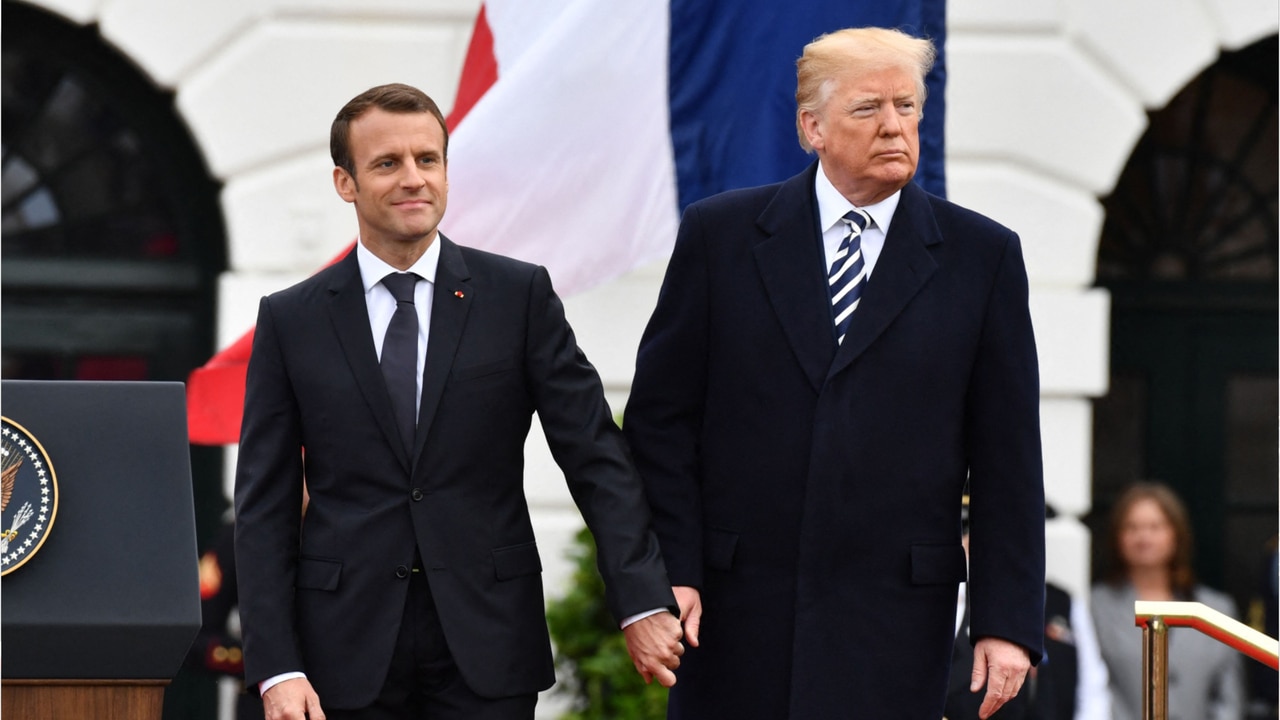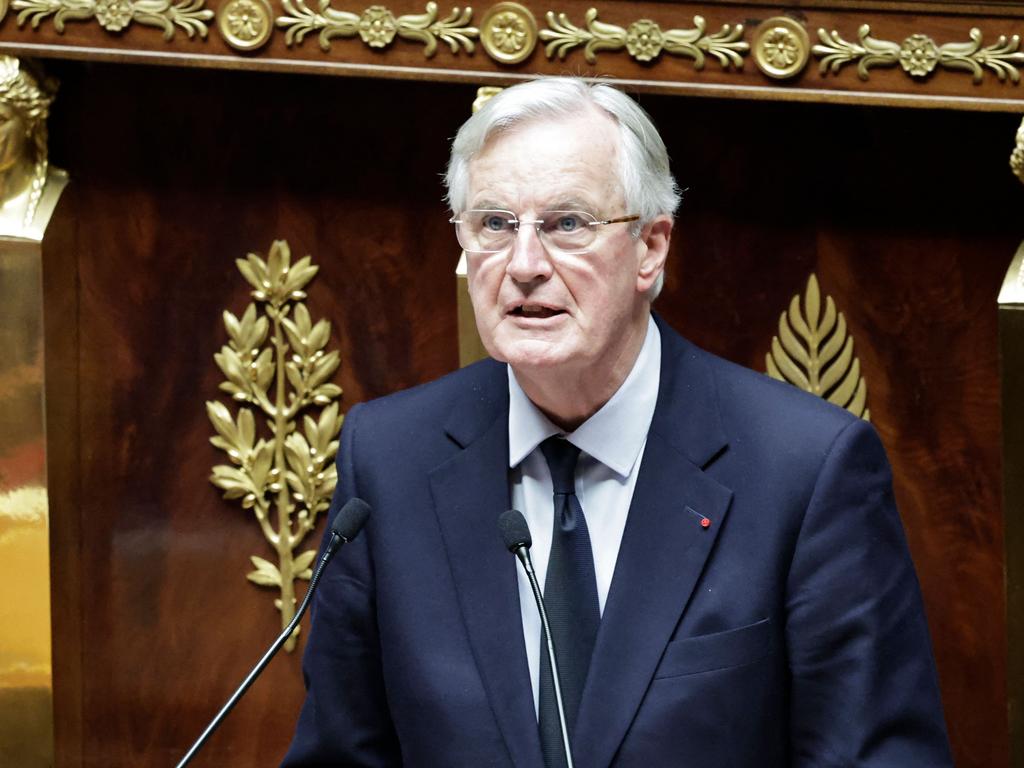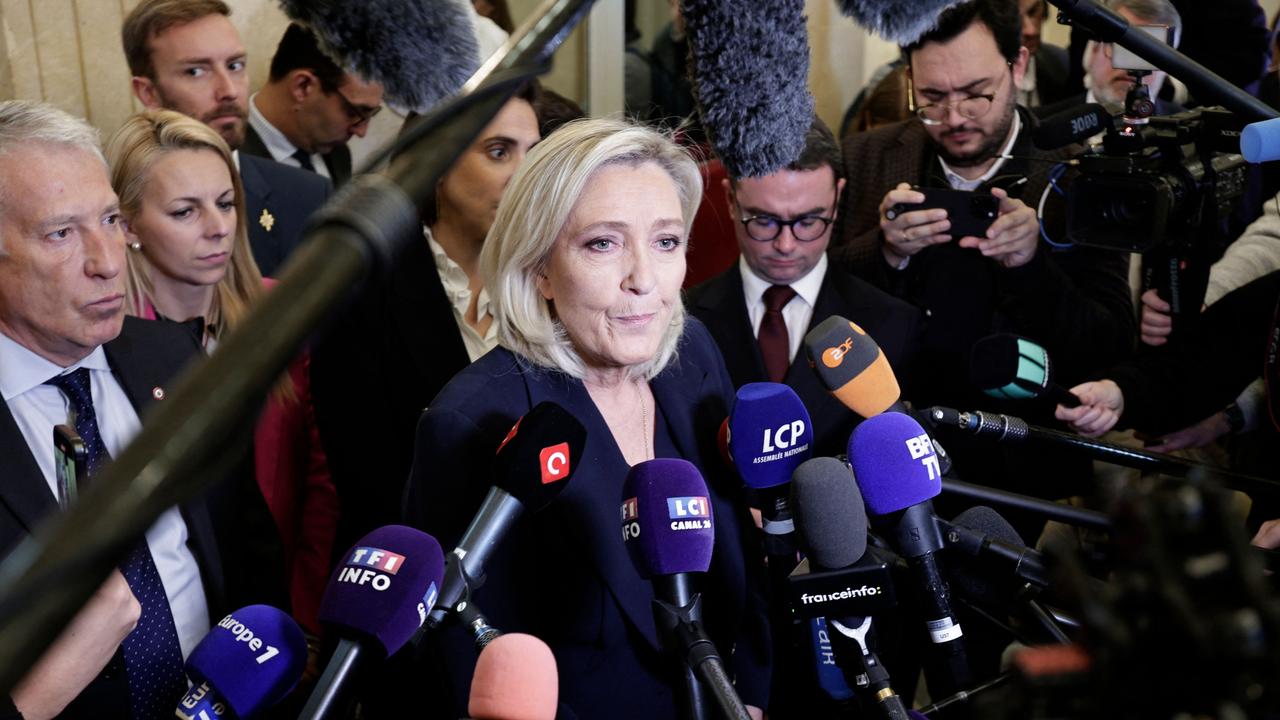France in crisis after PM forces through budget
The government in one European country is teetering on the brink of collapse after the PM made a very controversial move.

France’s government is on the brink of collapse after the prime minister forced through a budget without a vote in parliament.
Opposition lawmakers prepared to back a no-confidence motion on Wednesday that risks toppling the government of Prime Minister Michel Barnier after just three months in office.
A standoff between Barnier and the opposition over the 2025 budget, which has caused jitters on financial markets, follows months of tensions since the 73-year-old became prime minister in September at the helm of a minority government appointed by President Emmanuel Macron.

Far-left opposition party France Unbowed (LFI) said it would bring a no-confidence motion after Barnier used executive powers Monday to force through controversial social security legislation without a vote.
Marine Le Pen’s far-right National Rally (RN), which has demanded more concessions on the 2025 budget, said it would back the move.
French legislators were expected to hold a no-confidence vote against Barnier’s government on Wednesday afternoon, parliamentary sources said.

Two no-confidence motions will be put forward, including one by the far right that is unlikely to pass, but with the one proposed by the hard-left set to go through with backing from Le Pen’s RN lawmakers.
Le Pen “will plunge France into the great political and financial unknown”, Le Figaro newspaper said in an editorial.
Macron, who is on a visit to Saudi Arabia, is appearing so far as a spectator in the crisis, prompting some voices to question if he should consider resigning to break the impasse.
The latest turbulence intensifies months of political instability in the key EU member following this summer’s inconclusive snap parliamentary elections that were called by Macron in a botched bid to halt the march of the far right.
- ‘New period’ of uncertainty -
Barnier has promised to improve France’s fiscal position by 60 billion euros ($64 billion) in 2025 in the hope of cutting the public-sector deficit to five percent of gross domestic product, from 6.1 percent of GDP this year.

He has made a number of concessions to the opposition including scrapping plans for a less generous prescription drug reimbursement policy from next year. But Barnier has failed to win enough support, and forced through his budget without a vote.
“All indications are that the government will have fallen by the end of the week, less than three months after its appointment. This will usher in a new period of political uncertainty,” said economists at ING.
Finance Minister Antoine Armand told France 2 television that lawmakers would be “damaging” the country by ousting Barnier’s government.
“Who will bear the consequences? First and foremost, the French.”
If the government falls, it would be the first successful no-confidence vote since a defeat for Georges Pompidou’s government in 1962, when Charles de Gaulle was president.
The lifespan of Barnier’s government would also be the shortest of any administration of France’s Fifth Republic since 1958.
Le Pen, who has the power to decide the fate of the current government, has meanwhile been embroiled in a high-profile embezzlement trial.
If found guilty in March, she could be blocked from participating in France’s next presidential election, scheduled for 2027.
Some analysts suggested that Le Pen was playing a high-risk game and seeking to bring down Macron by ousting Barnier.
Were Macron to step down, elections would have to be called within a month, well ahead of the verdict in her trial.
“She could hope, if she won, to be in the Elysee Palace by early February -- giving the judges an impossible task when they have to decide whether or not to ban her from politics for five years on 31 March,” wrote Mujtaba Rahman, managing director for Europe at Eurasia Group.
France escaped a debt downgrade by rating agency S&P last week, which said that “despite ongoing political uncertainty, we expect France to comply -- with a delay -- with the EU fiscal framework and to gradually consolidate public finances”.
But the turmoil has helped weaken the euro against the dollar, pushing it to lows not seen since October last year.
The yield on French government debt rose in another sign of investor concern. France must now pay as much as Greece to borrow for 10 years.



